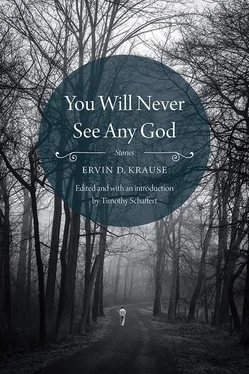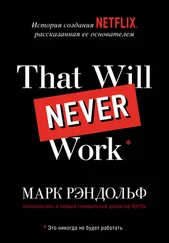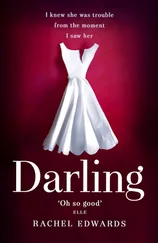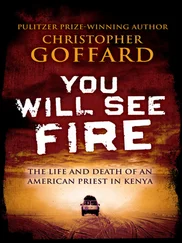My brother swore shortly, surprising his wife.
We could hear the phone ringing and my brother’s wife answering it before we got out the door; the neighbors were beginning to call.
We took the tractor, and axes to cut wood for a fire, and some gasoline in case the car could be moved, and two old blankets. The tractor had chains and was powerful and it did not have trouble with the drifts. We went up over the hill, the way I had come, for it was the shortest way. We pulled the fence down at the schoolhouse yard and drove the tractor up beside the car. The blowing snow was filtering in upon the two people now, and they were partly frozen; we could tell that by the strange, hardened white color of the flesh of them.
I attacked some fallen branches with the axe and chopped out some firewood, and I built a fire in a small bare spot, not far from the car. I pulled down some of the dry boards that had been used to cover the schoolhouse windows, and in a short while there was a good blaze going.
My brother looked at the bodies and he came over to the fire, and we talked about them.
When the farm a quarter-mile to the south had been operating, the road along there had been in use, and the country schoolhouse was used, too, a few years before, but with the enlarging of our farm and the other farms around there and the hard-surfacing of the county road a half-mile to the south, the country road and the school had no purpose, and both were abandoned. The road and the schoolhouse yard were used lavishly in the summer times by high school lovers. Many times, late in the evening, while at work in the fields, we had seen the cars parked in the same place where this green car stood. It was a favorite place, near enough to town, and there was no traffic, and it had opportunity and darkness. And these two had come here in the dead of winter, for their privacy, their opportunity to make love without anyone knowing, for they were both married, and each of them had children. It was a good place for lovers, and these, too, would have escaped without notice, but for the treachery of the snow and the cold.
My brother and I went to see if the car could be moved, but the drifts were packed and hard, and it was too viciously cold, and we returned to the fire. I thought of the woman, Mathilda Heron, and of her husband, Rudy Heron, and what kind of man he was, and I said, “We should move them out of the car at least. If Rudy comes down here, if he hears about it, there will be trouble.”
My brother nodded, but he hesitated when I opened the door of the car. The bodies were wound in the blanket, and to move them out and separate them, we would have to lift them out after the blanket was taken off. My brother looked at the woman’s face, and he would not touch them, although I knew he was very tough about seeing things dead, and he was three years older than I and had had more experience. I could not move them alone, and I did not ask him again to help. The woman did something to my brother, I could see by his face.
My brother had not been married long, and he had told me a long time before about the woman, Mathilda Heron, and how she used to get drunk sometimes in the bars in town, and how the men could talk easily to her, and she loved the attention of men, and they could take her out to the country, if the men pleased her, and most of them did. My brother had been one of these men, a year or so before, and I knew he was thinking about her. There was a gentleness in his eyes, and I knew he was thinking that even though she may have been too free, perhaps even a whore, she had done no harm to him, or to any of the other men.
The woman’s husband, Rudy Heron, was intensely jealous of her, and he used to get drunk, and try to follow her, and he swore he would kill anybody with her, but everybody laughed at him behind his back and thought him to be a fool, because he could not adequately keep his woman. The longer it carried on, the worse his jealousy became, and the louder his talk, and the drunker he was on those hot and violent evenings, and then even he knew he could not take her home as he should, or follow her, all he could do was slump over the bar and mutter and rage to himself.
Mathilda Heron was a pretty woman, I remembered. She had clear, clean skin, and a very large bosom, which, haltered and proper, she liked to thrust before the eyes of the men, and she had bright, very alive, brown eyes, and light-brown hair, and nice enough legs, with full, smooth calves, in spite of the four children she had borne. Even those four young children could not dissuade the woman, and one could see in her eyes her tigerish wants, and her husband was not her man.
The schoolteacher we knew only vaguely. I had seen Conrad Wenzel a few times in town, and he was a slender, cleanly handsome man. He was always neat and well-dressed, I remembered, as if he had come directly from a shower, and he had a ready smile, and I vaguely remembered his wife beside him on the street, and a child or two. His wife was dark-haired and pleasant, and slender, and I did not know her further than that.
Then they started coming, the neighbors. They came over the hill on their tractors, following the tracks we had made. They had heard about it by the telephone, and now they came, like vultures, to look upon the bodies. I said what I thought to my brother, and he shrugged his shoulders and said, “Ah, we probably would be doing the same thing if somebody else found them.”
“But it’s different,” I said. “It makes it our responsibility this way, because we found them.”
“What do you mean?” he asked.
“The other people,” I said.
“I don’t know what we’ve got to do with them,” he said.
The farmers arrived; there was Kamrad and Heintzelman and Anderson, and the first two were big and powerful Dutchmen, and Anderson was a thin Swede, and they were all bundled thickly against the weather. They climbed off their tractors and went to the car and looked, and they were astonished, except for Anderson who had to lift the blanket to peer more closely, and he sucked between his teeth all the while he looked.
The men came to the fire, and they nodded at us. “Does Rudy Heron know?” Heintzelman asked.
My brother and I shook our heads negatively.
“We better move them out of there,” I said. No one replied and no one moved.
“I took a load of cobs over to Rudy’s place this morning,” Anderson said in that high-pitched, still-Swedish voice of his. He had been born in this country, but he had taken the accent from his father. “Rudy didn’t say anything about his wife not being there, at home. I did think it funny he didn’t take me in the house to get warm.”
“How could he say anything about his wife not being home?” my brother asked, slowly and mildly. “Would anybody say anything if his wife was gone, and hadn’t come home all night?”
“Rudy’s awful jealous of her,” Kamrad said.
“He had a reason to be jealous this time,” Anderson said, with his high-pitched giggle. He looked around at them, as if hoping someone else would giggle, too.
The men looked at the car, and knelt beside the fire and chipped at the wood and threw some sticks into the fire, and looked at the car again, and hoped it would not be there.
“I wish that sheriff would get here,” my brother said.
That is what they all want, I thought. They wanted the sheriff to come, and take it all off their hands, so they could go home and not think about it anymore.
“Rudy Heron’s going to come down here,” I said. “He’ll hear about it and he’ll come down here, and it won’t be good.”
“What can we do about it?” Heintzelman asked.
Anderson gave his high-pitched laugh. “Ya, what can we do? We can’t stop him if he wants to come and look at his wife.” He looked around at the others.
Читать дальше











